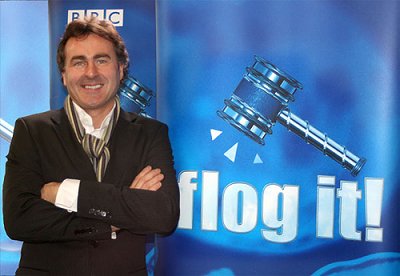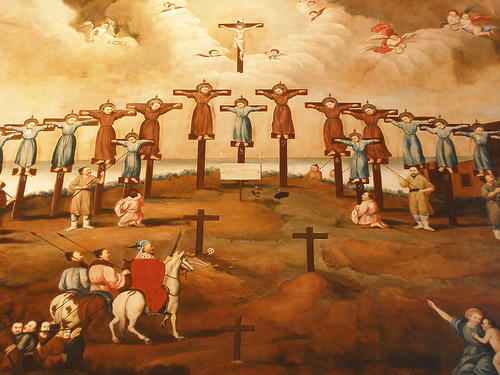
We shall end August with another John Milius effort - this time his collaboration with legendary director John Huston (The Maltese Falcon, Treasure of the Sierra Madre). The Life and Times of Judge Roy Bean (1972) is a colorful, episodic revisionist Western that has the makings of a great film but can't quite achieve take-off vleocity. Perhaps it's the director, the script, the plodding pace, the nonexistent plot full of digressions, but the movie just isn't the sum of its parts. Too bad, as it has the makings of a great Western; all it needed was better execution.
Roy Bean (Paul Newman) is a two-bit outlaw who arrives at a West Texas outpost, narrowly escaping death at the hands of some sneak thieves. Bean cuts a swath through the local gutter trash, shacks up with a pretty Mexican girl (Victoria Principal) and establishes himself as the "Law West of the Pacos" - a self-appointed judge who rules over a patch of West Texas with a huge arsenal, a lawbook, a gang of crooks-turned-lawmen, and his bizarre love for New York actress Lillie Langtry (Ava Gardner). Bean and his men effectively dispense the Judge's peculiar brand of justice and build up the town of Vinegaroon, but sleazy Eastern businessman Frank Gass (Roddy McDowell) arrives and slowly undermines Bean's authority, ultimatley booting him out. Twenty years later, Gass has turned the town into a den of depravity and corruption - and Bean, his old gang and daughter Rose (Jacqueline Bisset) strap on six guns to beat Gass at his own game.
Reading over the plot, and looking at the talent involved, one would think the success of Roy Bean is all but assured. Indeed, in parts, the film is brilliant. There are individual set pieces that soar - Bean's introductory scene, his encounter with a wandering preacher (Anthony Perkins), the summary execution of a vagrant (Neil Summers) who shoots a poster of "Miss Lillie", a showdown with psychotic outlaw Bad Bob (Stacey Keach). Milius's dialogue, as with the far-better Jeremiah Johnson, is appropriately rustic and colorful, with lots of great quotes; the art direction is fine and Maurice Jarre contributes a lively score. The movie's atmosphere is playfully irreverent, sending up many a Western cliche, and the film is certainly fun up to a point. However, despite all of its positive attributes, the movie repeatedly drops the ball.
The movie's biggest failings are that it can't decide on its tone, and the narrative is lost in a series of needless digressions. It has the look and feel of a gritty Peckinpah or Leone Western, but incorporates the cutesiness of Butch Cassidy and the Sundance Kid - and ultimately it fails as both. An episodic plot would be fine but the film doesn't pull it off; there's no real rhythym, rhyme or reason for development of scenes. The scenes with Bean's pet bear are just silly - particularly an asinine musical interlude reminiscent of Butch Cassidy. The bit with Bad Bob is amusing but arrives curiously late in the film, and nothing comes of it. The would-be mythic ending, with Bean and his old colleagues smiting crooked modern business, is a good (if obvious) idea that falters in execution. And the coda with Lillie visiting Bean's old place is just lame. The good parts of the film occur moment by moment, and never amount to a great film.
Paul Newman carries the film, giving a strong, pitch-perfect performance as Bean, the gruff, vulgar and violent yet curiously romantic man. The distinguished supporting cast is mostly reduced to cameos, some effective, some not. Victoria Principal is lovely and vibrant as Bean's love interest. Roddy McDowell seems out of place but comes off well-enough as the sleazy lawyer who undermines Bean's power; coming off less well is Jacqueline Bisset as Bean's daughter. Ava Gardner's cameo is quite a let-down after a movie's worth of build-up; Stacey Keach has fun as an albino gunslinger but he's in the movie for all of two minutes. Anthony Perkins gives a memorable one-scene performance as an incredulous preacher who stumbles across Bean. Director Huston comes off well in a small but colorful role, but Tab Hunter and Anthony Zerbe are wasted. Better are the bit actors like Roy Jenson, Steve Kanaly, Matt Clark, Bill McKinney and Ned Beatty, who make an impression despite remaining in the background for most of the film. Like Pat Garrett and Billy the Kid (which it strongly resembles in its langourous pace and episodic, scattershot narrative) it enlists a top and gives them next to nothing to do.
The Life and Times of Judge Roy Bean is a flawed, sporadically-interesting movie that never quite congeals into a coherent whole. There are great scenes and ideas that stand out on their own, but Huston and Milius can't quite make it work.















